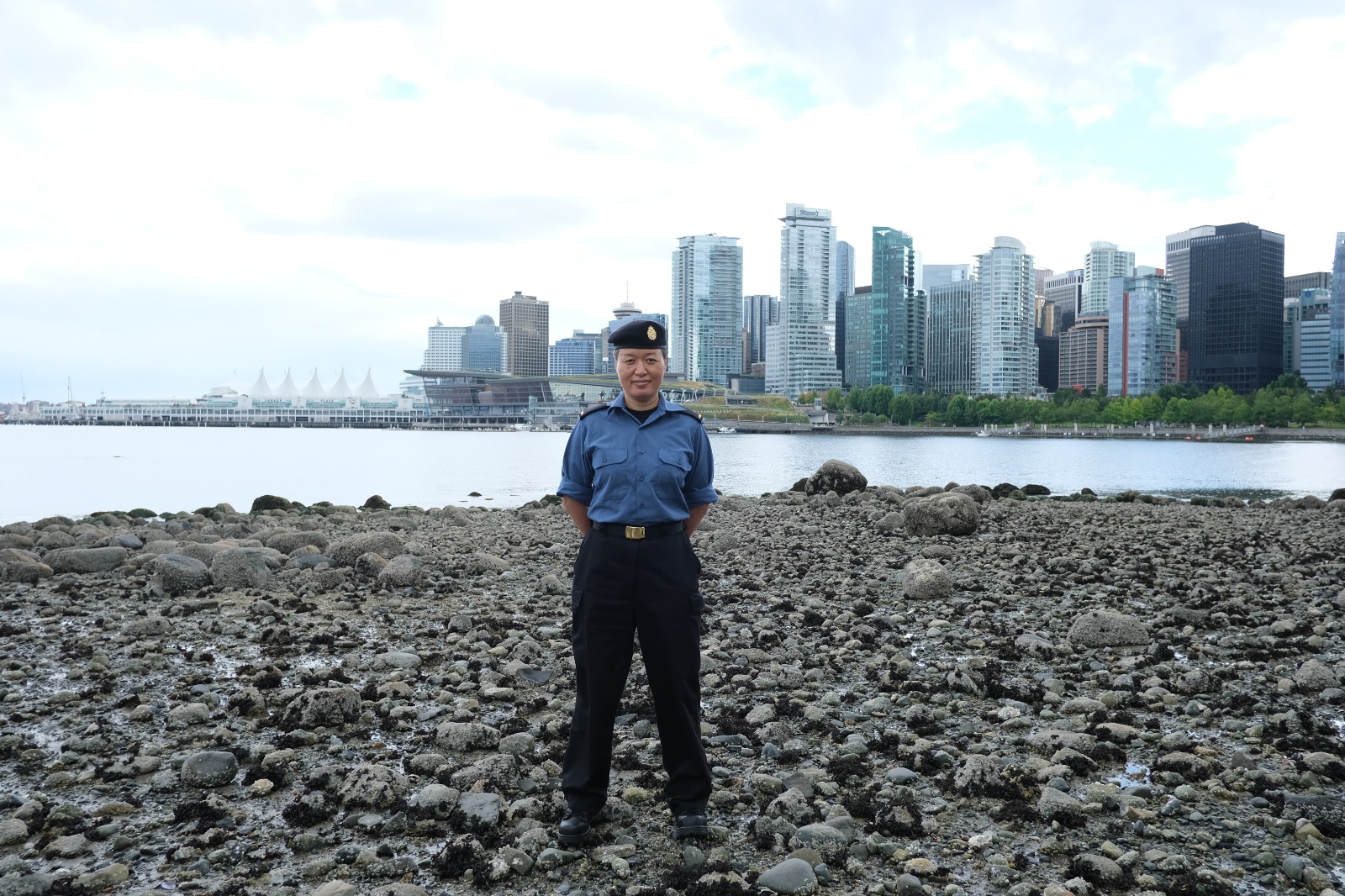Jennifer Kryworuchko Award
Lea Liang: First Kryworuchko Scholar
This annual scholarship has been made available through gifts from family and friends in memory of Jennifer Kryworuchko (1969-2019) and it is for an outstanding graduate student in the School of Nursing whose research is focused on patient-provider communication. Dr. Kryworuchko [B.Sc.N., Ph.D., RN, CNCC(C)] joined UBC in 2015 as an Associate Professor in the School of Nursing. She was highly respected and admired for her passionate dedication to nursing practice, her joy and remarkable talent in teaching nursing students, and her research to improve nursing care. Jennifer’s work to improve palliative care access through shared decision-making between patients and health professionals was exceptional. She was instrumental in enhancing interprofessional clinician guidance for the BC Centre for Palliative Care. Tragically, our community lost Jennifer in the prime of her life due to ovarian cancer. This scholarship was established to commemorate Jennifer’s exemplary contributions to nursing education and research.
Lea Liang, PhD student, is an exemplar of strength and determination; one who sets difficult goals for herself and seldom stops persevering until she achieves them. As her own trainer, she finished her first full marathon within about 4 hours, 33 minutes, and says a four-day road trip from Banff to Jasper by bike was enhanced by the mountainous roadway. “It was fun,” she says, indicating with a swooping arc of her hand, the constant flow of hills and valleys that many would find daunting. Clearly, Lea does not shy away from a challenge.
Twenty-two years ago, Lea emigrated from China on her own. As a person for whom caring is part of her nature, Lea was drawn to nursing, and after receiving the required training, took her first job in Canada as a care aide. While employed in a care home, Lea returned to school to obtain her LPN license and started working at a local hospital in 2006. It was in the acute sector that she noticed a particularly vulnerable group: first-generation immigrant seniors, mostly women. These patients often had little formal education in Canada but plenty of life experience. They worked hard to dedicate their lives to raising a family and maintaining a household. Often, they had limited interactions with western culture outside their social network. The experience of being admitted to acute care settings in later years when they were most frail and vulnerable, was for many of them, challenging and dramatic. An immigrant herself, Lea had lived experience of feeling vulnerable in unfamiliar surroundings and was sensitive to these patients’ feelings of confusion, fear, pain, frustration, and struggles with culture, illness, and a language barrier. She wanted to do whatever was necessary to enhance their quality of life in their advancing years.
Although Lea was moved by these women and wanted to amplify their voices, she was aware that confidence in her knowledge might be her own obstacle, and set about clearing it. She became a registered nurse in 2011, four years later, she attained her Master’s in Science of Nursing degree, and she is now a first-year doctoral student at UBC. Lea has not yet finalized her dissertation topic but hopes that her research will provide a voice to those first-generation immigrant seniors who don’t usually have one.
As she upgraded her nursing experience, Lea never forgot one of her childhood dreams. Her small home town had a military base nearby. The voices from the early morning drills sounded very powerful to her. Because there was a concrete wall around the base, Lea was left wondering what they were doing and why they needed to call out so loud. The curiosity inspired in her a desire to join the military; a dream she held onto for many years. As she pursued her nursing education, she hoped to apply for a nursingrelated job in the Canadian military, but after waiting nearly a year for a position to open, she realized that her window of opportunity was narrowing. As Lea was about to commence her first year as a PhD student at UBC—during a pandemic, no less—she abandoned her attempt to join up as a health care provider. Instead, she took a detour around the obstacle to her dream and signed on with the Royal Canadian Navy—as a cook. She completed her first two phases of basic military training in the summer of 2020 under COVID-19 pandemic restrictions.
During the last phase of basic military training, Lea was inspired by a petty officer who spoke to her cohort. His life story and wisdom had such an impact on Lea that she hopes to offer the same strength to others by her own example. Lea set a new goal to become a professor.
As one who rarely backs down, Lea recommends listening to the inner voice, and also, “Set up your goals and try to stick with them as much as you can. For many people, I believe struggling is part of the path leading to success.”
Lea provided this interview mere days after returning from a military base in Quebec, where she had completed the last phase of her basic military training. The training was both mentally and physically challenging but also fun. Her instructors were impressed by her “very positive attitude” and praised her persistance. So, as she embarks on the second year of her PhD studies at the School of Nursing, she proudly does so as an official navy reservist.
Her next challenge? “I need to speak up more,” Lea says, “because I want to inspire people as others have inspired me along the way.”
